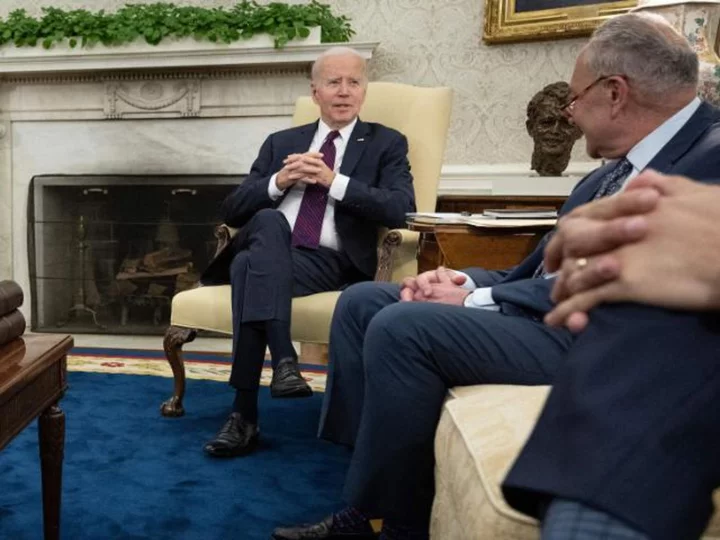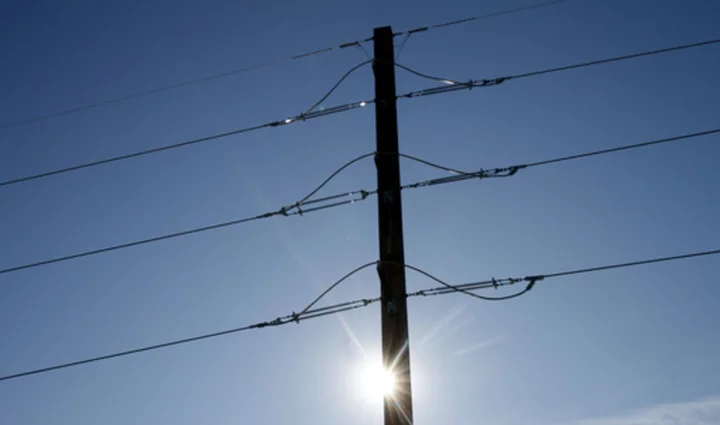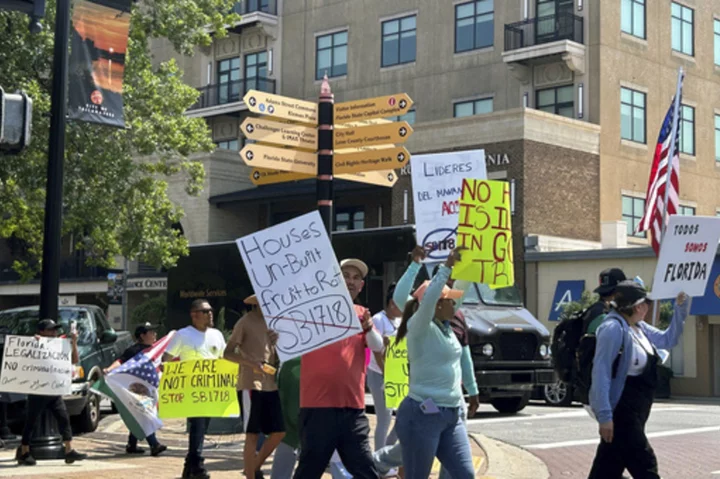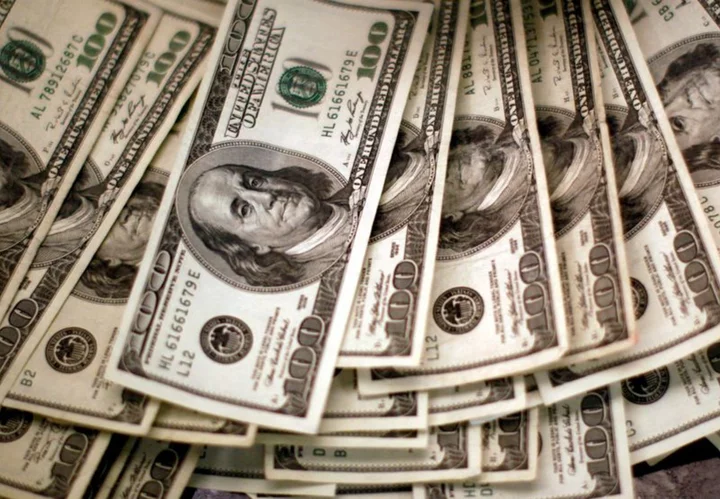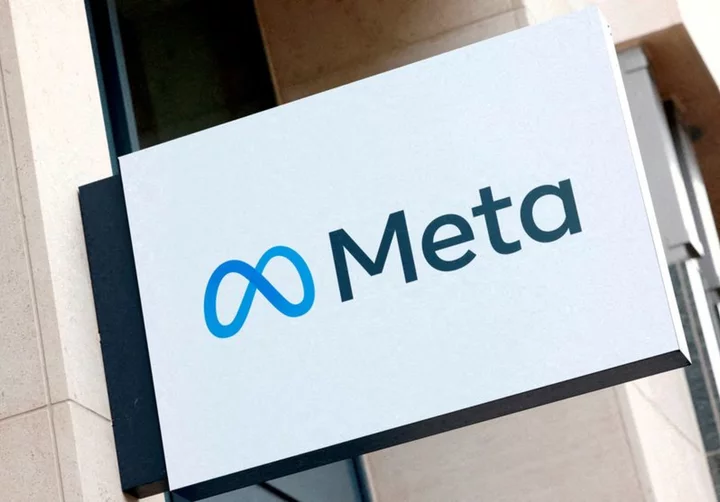President Joe Biden said over the weekend that debt ceiling negotiations were moving along and that talks between the White House and House Speaker Kevin McCarthy would resume on Tuesday.
But there is still no plan in place to avoid a default on US debt, and there are now just four days when both the House and Senate are scheduled to be in session before June 1, the date when Treasury Secretary Janet Yellen has warned the US government could run out of money.
Without swift action by Congress to raise or suspend its self-imposed borrowing limit, the country could soon be unable to pay its bills. Such a default would, in Yellen's words, cause "an economic catastrophe."
It would have serious ripple effects on small and medium-sized businesses. It may become more difficult to access credit, further exacerbating the challenges individuals and companies are already facing because of the banking crisis.
Before the Bell spoke with Dean Zerbe, the national managing director for Alliantgroup and former senior counsel and tax counsel to the US Senate Committee on Finance to discuss what that might look like.
This interview has been edited for length and clarity.
Before the Bell: What do the ongoing debt ceiling negotiations mean to small and medium businesses?
Dean Zerbe: There's a significant number of small and medium businesses that are still waiting for their employee retention credit [a tax credit introduced to encourage employers to retain their employees during challenging economic times] to come back to them. The IRS has a considerable backlog — well north of a million filings are still waiting to be processed. That's been a real lifeline for small and medium-sized businesses, often to the tune of hundreds of thousands of dollars. If the US doesn't have money to make those payments and there are further delays that means companies won't be able to hire or possibly even keep their doors open.
What happens if a US default collides with the crisis among regional banks?
It's a double hit — we already see credit drying up for small and medium businesses, it's getting tougher for them to get loans. The atmosphere has been very bad. Another way that these businesses get access to funds is through their tax refunds or through that employee retention credit. So if you're not getting tax refunds and you're not able to go to the bank, then there is a bit of a double whammy.
As someone who has been involved in these debt ceiling negotiations in the past, what do you think is happening behind closed doors right now?
It's really not that difficult to get a deal done, there's just a lot of posturing going on right now. Congress is dealing with a lot of pressure from a number of groups and everyone's got to show that they fought for their corner. This isn't impossible, but I do think that the White House should recognize that Republicans don't really have a steering wheel and that a game of chicken could get really dangerous.
Do you think bank executives and members of the business community can put pressure on Congress and the White House to come to a deal?
The House Speaker is going to pick up a call from [JPMorgan CEO] Jamie Dimon and he's going to listen to him. But then he's going to ask 'how many votes does Jamie Dimon have in the House of Representatives?' He's dealing with the barest of majorities, and he's working on getting his caucus on board to get votes. So yes, business leaders can advise, but they're not living in this situation. The White House needs to recognize that they can get finance CEOs to call but that's not going to sway the House to agree to a deal.
Top consumer watchdog warns US families: Be concerned about debt limit
The top consumer watchdog in the federal government has issued a warning to American families: The debt ceiling crisis could have dire consequences.
"It's a big worry. Every family should be concerned," Rohit Chopra, director of the Consumer Financial Protection Bureau, told CNN in an interview last week.
Chopra said a default would cause borrowing costs — including credit card, car loans and mortgage rates — to spike because US debt serves as a critical benchmark for various forms of credit, reports my colleague Matt Egan. US Treasuries have long been viewed as risk-free assets, keeping their rates very low.
"If global investors do not think that is completely safe, all of us will end up paying for it," Chopra said.
Asked to react to former President Donald Trump dismissing a default as perhaps just a "week or bad day" to CNN's Kaitlan Collins, Chopra declined to comment directly on political candidates. But in his response, Chopra made clear he has the exact opposite view.
"A lot of things we assume are part of our financial fabric would get ripped away," Chopra told CNN.
Some economists have warned of mass layoffs if the government defaulted. The White House has estimated more than 8 million jobs would get wiped out if there is a protracted default.
"From our own knowledge and oversight of the banking system, we know that everyone is extremely concerned. Corporate America, main street, all of it could be affected," Chopra said. "The impacts are really quite acute, often for those who can least weather those economic storms."
Pickleball is replacing Bed Bath & Beyond and Old Navy at malls
Can pickleball, the sport that combines elements of tennis, badminton and ping-pong, save the US mall?
Venues for America's fastest growing sport are replacing recently shuttered Bed Bath & Beyond, Old Navy, and Saks Off 5th stores, reports CNN's Nathaniel Meyersohn.
A group called Pickleball America is taking over an 80,000 square-foot anchor space in Stamford, Connecticut, in a former two-story Saks Off 5th retail store this summer. It's set to become one of the largest indoor pickleball venues in the United States.
The Meadows at Lake Saint Louis, an outdoor mall, plans to fill the space once occupied by Bed Bath & Beyond with a pickleball club.
A pickleball facility recently opened in a former Burlington store space at Shore Mall in New Jersey, and a pickleball club took over an Old Navy space at a New Hampshire mall.
And the first Camp Pickle, a new chain that pairs pickleball with food and drink options in a 1940s-era camp culture setting, is set to open next year in Huntsville, Alabama. It will also expand to Atlanta, Dallas and Minneapolis.

